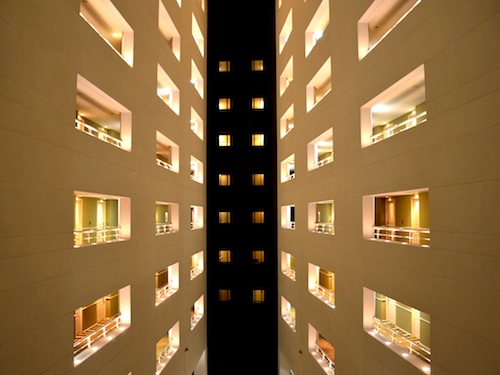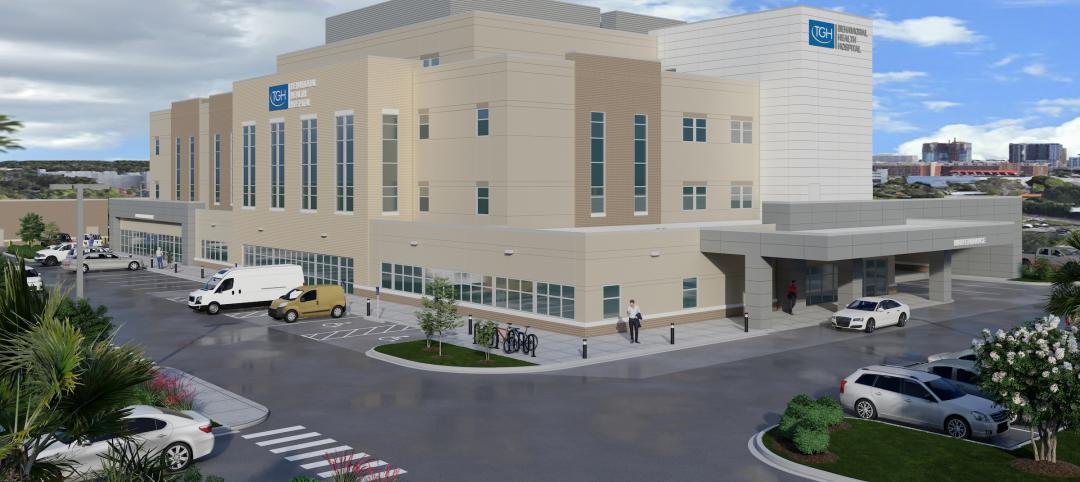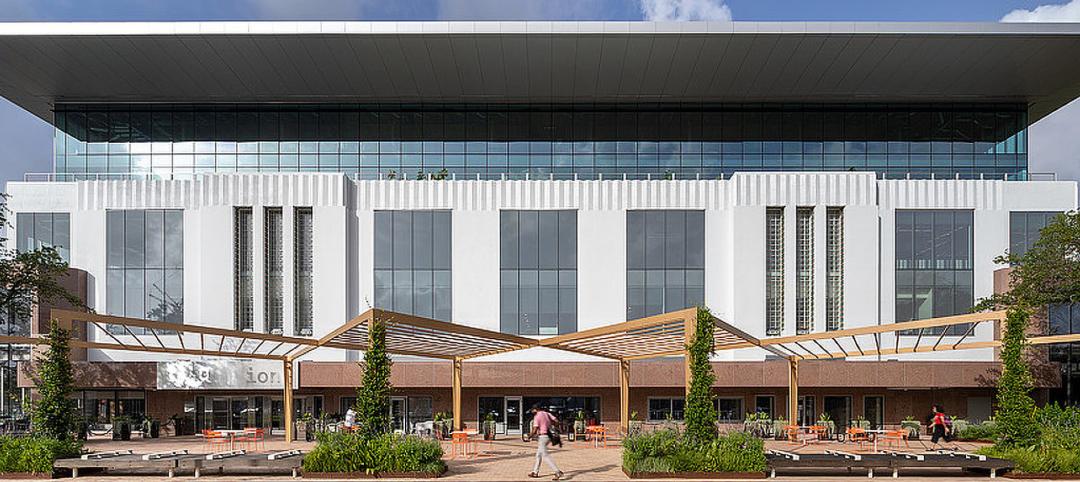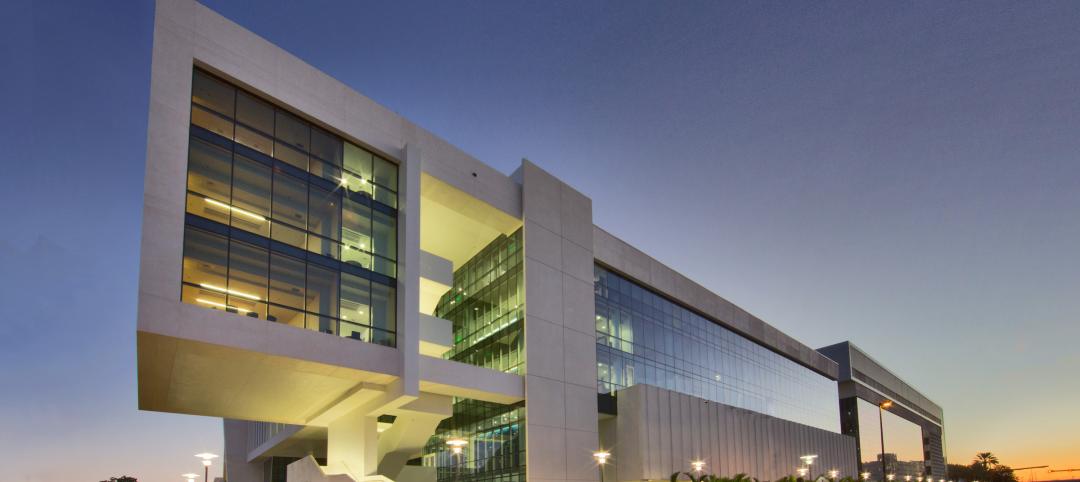RALEIGH, N.C., (April 5, 2013) – FMI, the largest provider of management consulting and investment banking services* to the engineering and construction industry released today its Q1-2013 Construction Outlook. Although the strength of individual markets is shifting, the forecast for total construction-put-in-place for 2013 continues to show an increase of 8% over 2012 levels. The $918,897 million estimate is a solid improvement, but FMI does not expect to return to the days of annual construction above the trillion-dollar mark until 2015.
The star of the show is residential buildings with a 23% rise in single-family buildings. While much of business sector is still in wait-and-see mode, some industries are breaking the mold and planning for growth. Commercial, lodging and office construction are starting to pick up.
The rich shale regions of the country are seeing a lot of construction activity. With oil and gas exploration booming, these regions are in need of housing, as well as the construction of roads, rail and pipelines to move the product from the fields to refining and distribution sites.
In addition, the potential for greater energy independence and lower energy prices is helping to make the U.S. more competitive in the global market and enticing more manufacturing to relocate in the U.S.
Residential Construction — Single-family housing put in place grew 19% in 2012, and FMI expects another 23% growth to reach $161 billion by the end of 2013. Multifamily construction improved a whopping 47% in 2012, with FMI looking for another 31% in 2013.
Nonresidential Construction Trends and Forecasts by Sector:
Lodging — After three years of steep declines, the market for lodging construction came back a strong 25% in 2012 and FMI expects another 10% growth in construction put in place for 2013.
Office — Office construction is finally showing a solid but slow turnaround with 5% growth in 2012 and another 5% increase expected in 2013.
Commercial — Commercial construction is the third largest nonresidential construction market behind education construction and manufacturing construction. That is why it is good to see that it continues into its third year of good growth, moving up 8% in 2012 and looking for another 7% to reach $50.3 billion in 2013.
Health care — Health care construction was moderate in 2012, growing only 3%, but FMI expects it to pick up in 2013 to 8% to $44.2 billion construction put in place for the year.
Manufacturing — Manufacturing construction increased 17% in 2012. It will continue with another 6% increase for 2013 through 2014.
Power-related — Construction for the power market grew 9% in 2012 and will continue to grow between 8% and 9% through 2017.
Related Stories
Engineers | Sep 15, 2023
NIST investigation of Champlain Towers South collapse indicates no sinkhole
Investigators from the National Institute of Standards and Technology (NIST) say they have found no evidence of underground voids on the site of the Champlain Towers South collapse, according to a new NIST report. The team of investigators have studied the site’s subsurface conditions to determine if sinkholes or excessive settling of the pile foundations might have caused the collapse.
Office Buildings | Sep 14, 2023
New York office revamp by Kohn Pedersen Fox features new façade raising occupant comfort, reducing energy use
The modernization of a mid-century Midtown Manhattan office tower features a new façade intended to improve occupant comfort and reduce energy consumption. The building, at 666 Fifth Avenue, was originally designed by Carson & Lundin. First opened in November 1957 when it was considered cutting-edge, the original façade of the 500-foot-tall modernist skyscraper was highly inefficient by today’s energy efficiency standards.
Healthcare Facilities | Sep 13, 2023
Florida’s first freestanding academic medical behavioral health hospital breaks ground in Tampa Bay
Construction kicked off recently on TGH Behavioral Health Hospital, Florida’s first freestanding academic medical behavioral health hospital. The joint venture partnership between Tampa General (a 1,040-bed facility) and Lifepoint Behavioral Health will provide a full range of inpatient and outpatient care in specialized units for pediatrics, adolescents, adults, and geriatrics, and fills a glaring medical need in the area.
Adaptive Reuse | Sep 13, 2023
Houston's first innovation district is established using adaptive reuse
Gensler's Vince Flickinger shares the firm's adaptive reuse of a Houston, Texas, department store-turned innovation hub.
Giants 400 | Sep 12, 2023
Top 75 Retail Sector Engineering and Engineering Architecture (EA) Firms for 2023
Kimley-Horn, Henderson Engineers, Jacobs, and EXP head BD+C's ranking of the nation's largest retail building engineering and engineering/architecture (EA) firms for 2023, as reported in the 2023 Giants 400 Report. Note: This ranking factors revenue for all retail buildings work, including big box stores, cineplexes, entertainment centers, malls, restaurants, strip centers, and theme parks.
Giants 400 | Sep 11, 2023
Top 140 Retail Sector Architecture and Architecture Engineering (AE) Firms for 2023
Gensler, Arcadis, Core States Group, WD Partners, and NORR top BD+C's ranking of the nation's largest retail sector architecture and architecture engineering (AE) firms for 2023, as reported in the 2023 Giants 400 Report. Note: This ranking factors revenue for all retail buildings work, including big box stores, cineplexes, entertainment centers, malls, restaurants, strip centers, and theme parks.
Resiliency | Sep 11, 2023
FEMA names first communities for targeted assistance on hazards resilience
FEMA recently unveiled the initial designation of 483 census tracts that will be eligible for increased federal support to boost resilience to natural hazards and extreme weather. The action was the result of bipartisan legislation, the Community Disaster Resilience Zones Act of 2022. The law aims to help localities most at risk from the impacts of climate change to build resilience to natural hazards.
MFPRO+ Research | Sep 11, 2023
Conversions of multifamily dwellings to ‘mansions’ leading to dwindling affordable stock
Small multifamily homes have historically provided inexpensive housing for renters and buyers, but developers have converted many of them in recent decades into larger, single-family units. This has worsened the affordable housing crisis, say researchers.
Engineers | Sep 8, 2023
Secrets of a structural engineer
Walter P Moore's Scott Martin, PE, LEED AP, DBIA, offers tips and takeaways for young—and veteran—structural engineers in the AEC industry.
Healthcare Facilities | Sep 8, 2023
Modern healthcare interiors: Healing and care from the outside in
CO Architects shares design tips for healthcare interiors, from front desk to patient rooms.

















